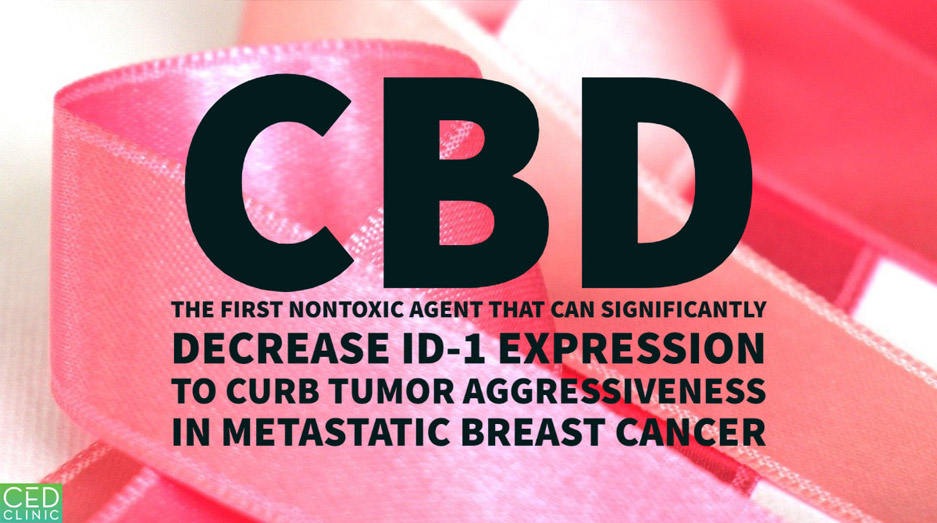Invasion and metastasis of aggressive breast cancer cells to other organs is the final and fatal step during cancer progression. Recently, the Id-1 protein was found to be abnormally overexpressed and to serve as a key promoter of the metastatic potential of cancer cells. More specifically, in a research study using mouse models of this disease, scientists demonstrated that metastatic breast cancer cells became significantly less invasive and less metastatic when Id-1 was downregulated using a technique called “antisense stable transduction”. It is not possible at this point, however, to use antisense technology to reduce Id-1 expression in patients with metastatic breast cancer.
Fortunately, more recently cannabidiol (CBD) – a cannabinoid derived from the plant cannabis – has been reported to be able to reduce Id-1 expression. In particular, experimental data suggested that CBD can interfere with the transcription of Id-1 mRNA from Id-1 gene; as a result, it decreases the level of Id-1 mRNA and protein in aggressive human breast tissues, preventing these cells from migrating effectively. Also important is the fact that CBD possesses low-toxicity and no adverse psychological effects.
In short, as the first nontoxic agent that can significantly decrease Id-1 expression in metastatic breast cancer cells leading to lowered tumor aggressiveness, CBD represents a promising drug candidate for treating breast cancer.

